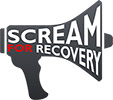Choosing a clean and sober life rather than one clouded by drugs or alcohol is not a simple decision nor is it easy for the addict to achieve and sustain. Most often, whatever problems or situations made a person escape into drugs or alcohol initially will still be waiting for them after recovery. After all, recovery is getting back what you once had and that includes many of the bad things as well as the good. The trick is to learn how to deal with the bad in a new and non-addictive way.
Choosing a sober living environment is key to achieving a clean and productive life. The newly sober cannot return to the previous situations that enabled them in the first place. They may have changed, but the addictive triggers are still there. Drug or alcohol dependent friends or family are at the top of that list. In order to continue relationships with addicted family members, the recovered person must serve as an example of what life can be without harmful crutches. In recognizing that alcoholism and drug dependency are a family disease, many of the best drug addiction treatment programs provide support with addiction therapy and family counseling sessions.

How To Prepare for a Sober Life
Sober freedom can begin with a sober living environment, a transitional place to become acclimated to sobriety and prepare for life in the “outside world.” The Discovery House offers transitional housing at no additional cost to the resident through their Intensive Outpatient Program. Here the recovering addict can begin to lead a productive life by finding a job and doing volunteer work in the community.
As part of therapy at the best treatment centers, residents take regular outings with their counselors. These socialization trips allow newly sober individuals to put into practice techniques that they are learning during therapy. Through these trips, counselors help residents experience how to be sober in real society, not just in their therapy sessions.
Relapse Prevention is Key to a Sober Life
Prevention Program is designed to provide support to members and also help them get involved with positive activities in the community.
How to Achieve Lifelong Sobriety
To obtain lifelong sobriety, it is essential that the recovering person learns and adopts a healthy new lifestyle. They must abandon their destructive ways and develop the tools necessary to handle life’s many challenges.
Oftentimes, successfully maintaining sobriety requires patients to alter everything about the previous lives they led while they were actively addicted to alcohol and other drugs. The Twelve Step Program advocates changing “playmates, playgrounds, and playthings.” This could include replacing jobs, eliminating certain harmful friends and even abandoning loved ones who are deemed toxic to their sobriety. They may even choose to continue living in the community in which they achieved their sobriety and where they formed clean relationships with other recovering addicts rather than returning to the area where they previously lived.
In short, the key to a sober life is gaining the ability to apply newly learned coping skills in order to lead a productive life free from drug and alcohol dependence outside the treatment center. An ongoing, long-term aftercare program will provide the necessary support to help prevent relapse.

